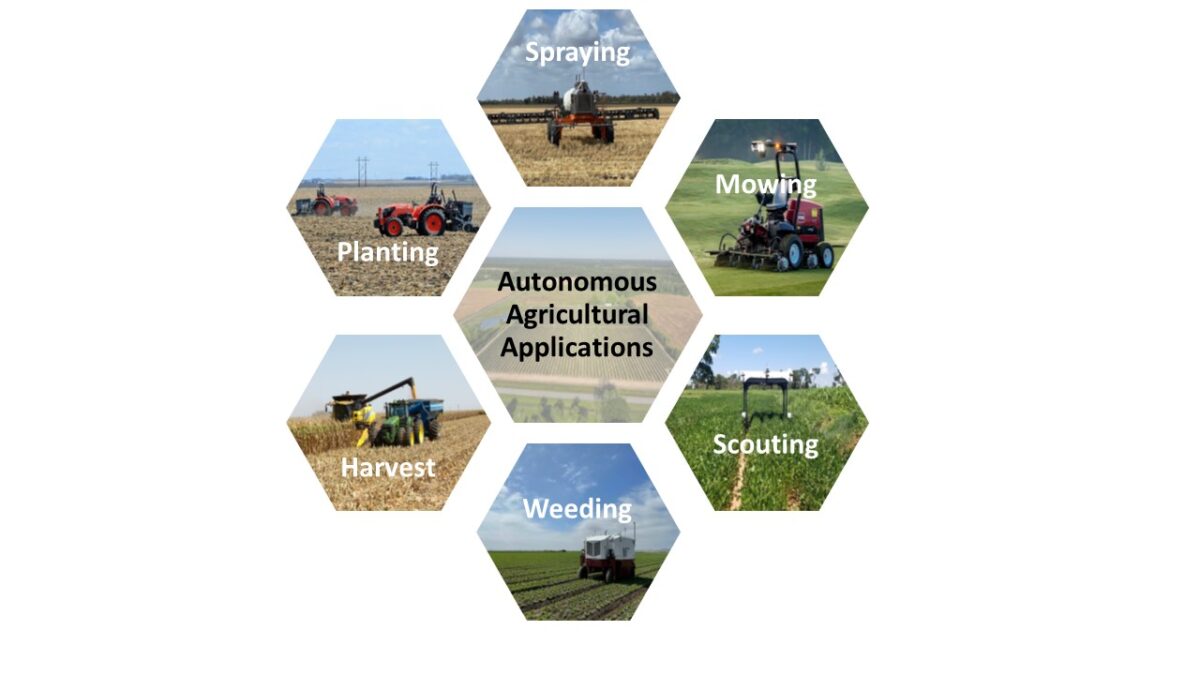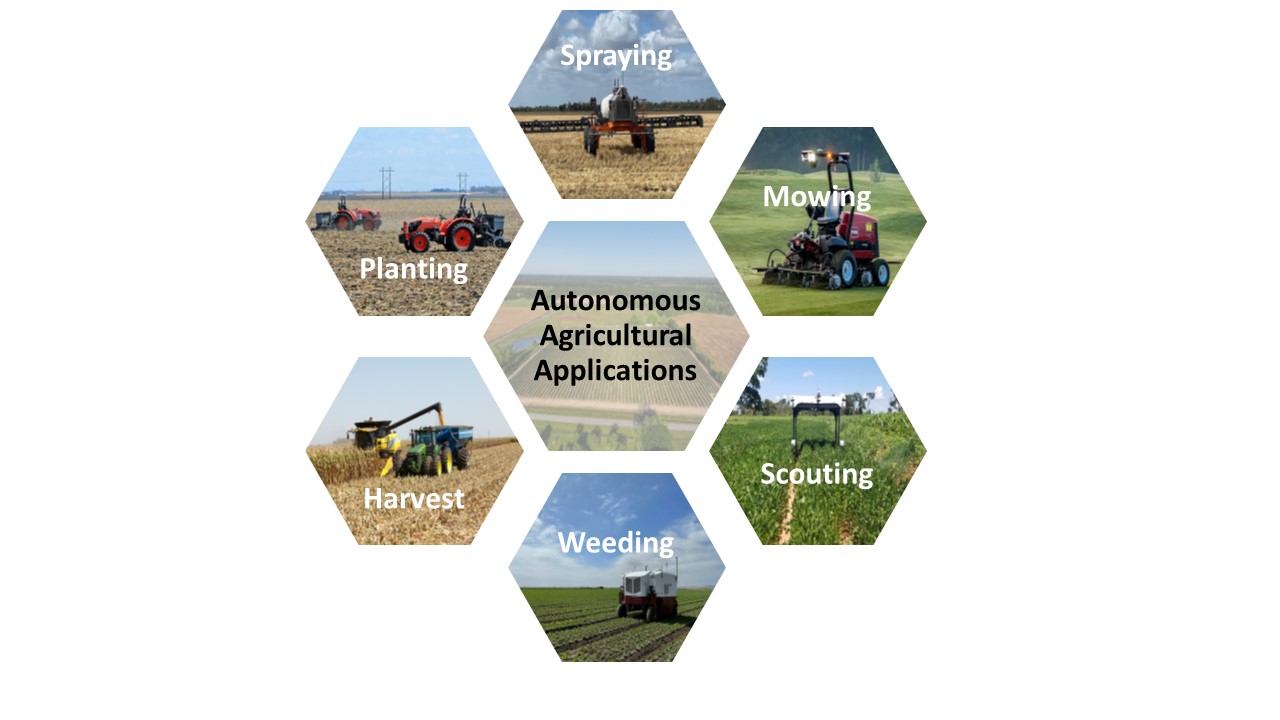Teaming for Interdisciplinary Research Pre-Seed Program
Exploring Autonomous Machinery Operations and Applications in Georgia Agricultural Crops

Exploring Autonomous Machinery Operations and Applications in Georgia
Agricultural Crops

While autonomy in agriculture has been talked about for a while now in precision agriculture but just recently it has gained tremendous momentum due to the expanding list of companies with innovative autonomous tractors or machinery. Rising input costs, labor shortage and large expensive agricultural machinery are among many factors that are putting the small, autonomous vehicles at the fore-front of solving some of these complex challenges in agriculture today. Due to this increasing demand for autonomous operations and applications, both large and small-scale companies are working on developing and making these advanced products commercially available for different agricultural markets including row, specialty and hay/forage production. As agriculture varies by geographic region across the United States, most of these companies are working with local university researchers and industry stakeholders to explore novel autonomous machinery operations and applications specific to the regional crops and other agricultural commodities. Many of these active collaborations are currently underway at different public and private institutions in the midwestern US but none currently in the southeastern US including Georgia.
The goal of this IPA team is to work together to identify major areas specific to their expertise or crops that can benefit from autonomous machinery operations/applications, and to build and strengthen relationship with industry partners in this emerging area to research and explore innovative autonomous solutions for different agricultural crops grown in the state of Georgia. Some efforts are already underway to engage industry in collaborative research projects to explore autonomous applications in different areas such as using autonomous tractor kit for mowing in turf/hay production, row-crop planting and harvest operations, and row and specialty crop spray applications. Currently, there are also several autonomous companies that have developed products for particular agricultural operations such as autonomous weed spot-sprayer or laser weeder. Once priority areas within each crop and/or agricultural operations are established, the team will plan to meet and engage with some of the interested industry partners to determine how their current autonomous products can be applied directly to different agricultural operations within those areas and appropriate research projects be initiated to investigate the feasibility and benefits of autonomous solutions in these different areas of precision agriculture. The team will likely grow and expand beyond this initial group to include more members from other areas or expertise as new areas for collaboration and opportunities are identified.
Team Lead
Simerjeet Virk
sv90566@uga.edu
College: Agriculture and Environmental Sciences
Department: Crop and Soil Sciences
Team Members
Glen Rains
College: College of Agricultural and Environmental Sciences
Department: Etomology
Lisa Baxter
College: College of Agricultural and Environmental Sciences
Department: Crop and Soil Sciences
Luan Oliveira
College: College of Agricultural and Environmental Sciences
Department: Horticulture
Qianwen (Cami) Li
College: College of Engineering
Department: School of Civil, Agricultural and Mechanical Engineering
Guoyu Lu
College: College of Engineering
Department: School of Civil, Agricultural and Mechanical Engineering
Lorena Larceda
College: College of Agricultural and Environmental Sciences
Department: Crop and Soil Sciences
Wes Porter
College: College of Agricultural and Environmental Sciences
Department: Crop and Soil Sciences
Jonathan Oliver
College: College of Agricultural and Environmental Sciences
Department: Crop and Soil Sciences
